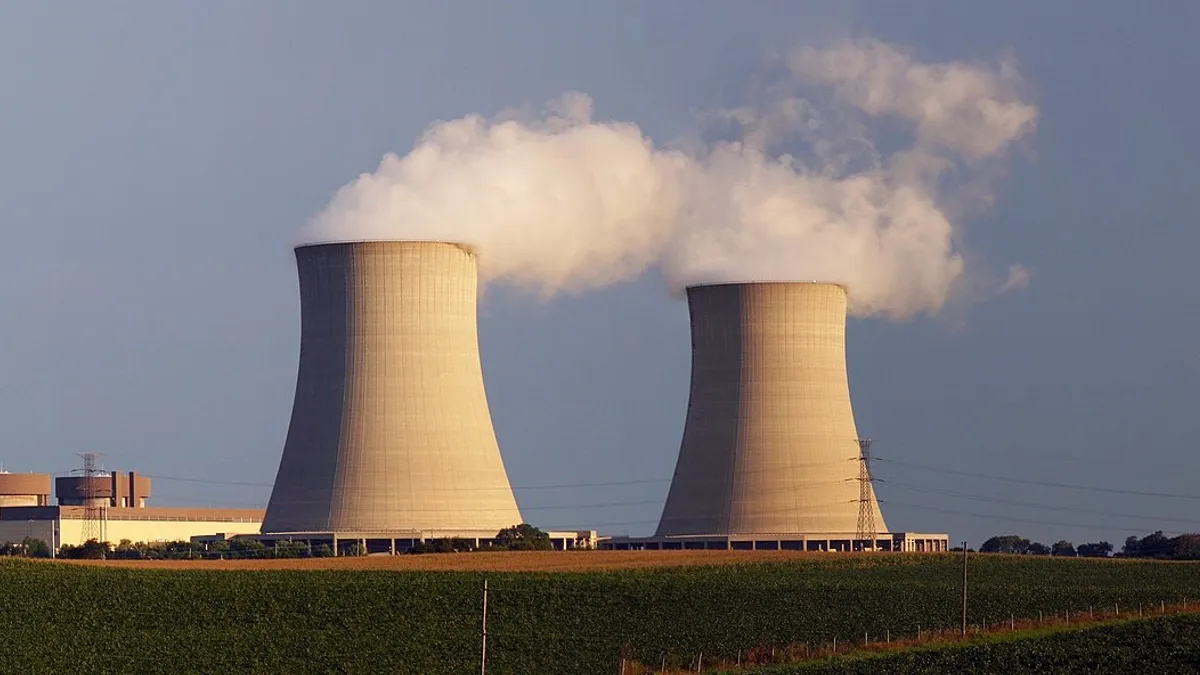Constellation Energy will acquire Calpine in a deal with an equity purchase price of $16.4 billion, the two energy giants announced Friday. The combined entity will own almost 60 GW of nuclear, natural gas, geothermal, hydro, wind, solar, cogeneration and battery storage.
Initial reaction from the financial community was positive, with S&P Global Ratings noting the combined company will be the largest U.S. power generator with the potential to hedge output across varying markets. But investment banking firm Jefferies noted concerns around market power and possible related divestitures, and said the deal may face opposition.
Shares of Constellation traded up about 20% following the announcement. Calpine is a private corporation.
Constellation and Calpine said the deal “creates the cleanest and most reliable generation portfolio in the U.S., with a diverse, coast-to-coast portfolio of zero- and low-emission generation assets.” The new company will include “a significantly expanded presence in Texas, the fastest growing market for power demand, as well as other key strategic states, including California, Delaware, New York, Pennsylvania and Virginia,” they said.
The deal is a cash and stock transaction composed of 50 million shares of Constellation stock and $4.5 billion in cash plus the assumption of approximately $12.7 billion of Calpine net debt. The net purchase price is $26.6 billion, the companies said.
By combining Constellation’s nuclear generation with Calpine’s gas and geothermal fleet, “we will be able to offer the broadest array of energy products and services available in the industry,” Constellation President and CEO Joe Dominguez said in a statement.
Calpine’s gas plants “will play a key role in maintaining grid reliability for decades to come as customers transition to cleaner energy sources,” the companies said. “At the same time, Constellation will invest in adding more zero-emission energy to the grid by extending the life of existing clean energy sources, exploring new advanced nuclear projects, investing in renewables and increasing the output of existing nuclear plants.”
Constellation also plans to restart the 835-MW Three Mile Island Unit 1 nuclear generating station in Pennsylvania in 2028, the company announced in September. The recommissioned unit will be called the Crane Clean Energy Center.
Constellation and Calpine say the acquisition is expected to close within a year, and must be approved by the Federal Energy Regulatory Commission, the Canadian Competition Bureau, the New York Public Service Commission, the Public Utility Commission of Texas and other regulatory agencies.
S&P said the new company’s broad reach will be a boon, with growing electricity demand possibly extending the life of some gas assets.
“We view Calpine's portfolio as complementary to that of Constellation's not only from its technology and fuel diversity, but also its geographic footprint across power markets,” Aneesh Prabhu, managing director of power and liquefied natural gas infrastructure for S&P Global Ratings, said in a research update.
Calpine’s plants are concentrated in California, Texas and the U.S. Mid-Atlantic and Northeast regions.
The combined company will be able to generate cash flows by hedging its portfolio through capacity auctions, retail and wholesale load sales, nuclear production tax credits, and bilateral and exchange sales, Prabhu said.
Natural gas generation does face some risk as the U.S. works to decarbonize, but rising demand from data centers and artificial intelligence will likely mean the plants remains critical to grid reliability, experts say.
Data centers could account for 44% of U.S. electricity load growth from 2023 to 2028, Bain & Co. said in an October analysis. U.S. electricity demand is projected to grow 9% by 2028 and 18% by 2033, an increase of 2% per year, on average, relative to 2024 levels, consulting firm ICF said in a September report.
“The dramatic increase in the digital economy has extended the asset lives of Calpine's gas generation fleet well into the 2040s, in our opinion,” Prabhu said.
Market power concerns and regulatory approval are “the key” questions, analysts at Jefferies said. Constellation “disclosed that it will propose ‘limited’ PJM asset sales to address concentration as part of its FERC mitigation plan.”
“Management expects significant interest in the proposed divestitures packages,” Jefferies said in its equity research note. “Given the increased political and overall attention on power demand, we would expect a protracted process and likely opposition from stakeholders, including regulated utilities.”























